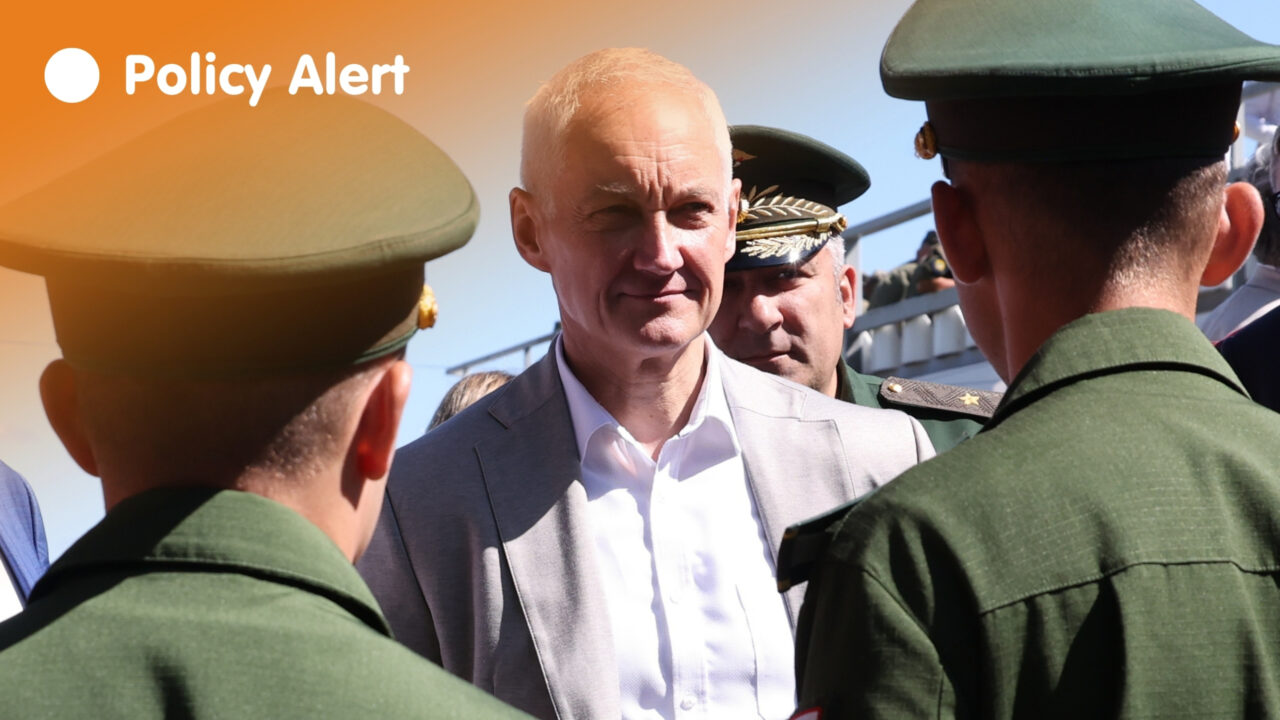Putin’s military makeover: What to expect from Russia’s new defence minister
Putin’s appointment of Andrei Belousov as defence minister signals the Kremlin’s push to rapidly modernise the Russian military – and further reshuffles may be on the horizon
Two years into Russia’s invasion of Ukraine and President Vladimir Putin is shaking things up. On 12 May, he appointed deputy prime minister Andrei Belousov as the new defence minister, sacking long-time ally Sergei Shoigu after 12 years in the job. Belousov, a technocrat and economist, now finds himself in charge of intra-government cooperation for the war effort, second only to the president. He will act as the arbiter of military effectiveness, and appears set on rapidly boosting its procurement system, equipment, and welfare support.
Yes, Minister… and his team
In his previous post, Belousov built strong connections with Russian big business and oversaw a significant expansion in Russia’s drone production. His appointment suggests that the Kremlin wants more where this came from and is focused on modernising the military with more hi-tech equipment such as unmanned vehicles, AI, and advanced intelligence, surveillance, target acquisition, and reconnaissance systems. Belousov’s economist background may also signal a renewed push to make defence spending more efficient, for example, by diversifying the supply base of Russian military industry providers. But technical modernisation will be meaningless without improving the skills of Russian officers and the command and control system. For that, Belousov, an outsider to the military world, needs allies within the army’s general staff to implement and enforce his reforms.
The Kremlin has kept the chief of general staff, Valery Gerasimov, in place for now, but this is likely to maintain an image of order. Gerasimov’s stay in the position will probably hinge on the effectiveness of Russia’s offensive operations this summer and the intensity of the war: the more intense the fighting is, the riskier it will be to suddenly change the key military commander. However, Gerasimov has spent a long time in the post, and he may no longer be up to the task at the scale Belousov looks set to undertake. To boost his chances of reform, Belousov may choose a younger, obedient chief with war experience.
Other changes look set to be announced once Belousov has secured his position and appointed key allies. He will probably select administratively savvy deputy defence ministers who will be crucial for managing the military’s gigantic financial flows and adapting Russia’s legal and economic system to meet the military’s needs. Such changes would further signal the army is gearing up for a streamlined and well-funded modernisation.
Watch this space
Ukraine’s Western partners and allies should closely monitor any changes made by Belousov, as his attempts at military efficiency rely on its personnel. The key elements to watch are new appointments in the ministry, changes in the leadership of the general staff, military branches, and district commanders. In terms of institutional changes, reform of the military education and training systems, procurement, and monitoring and evaluation mechanisms will also be crucial. The good news is that Belousov will mostly likely pick up development ideas that are already in the public realm, as was the case with all previous defence ministers, so observers can expect nothing too unexpected.
The European Council on Foreign Relations does not take collective positions. ECFR publications only represent the views of their individual authors.



